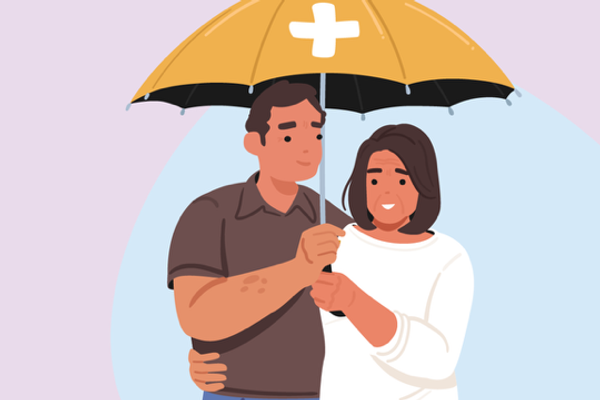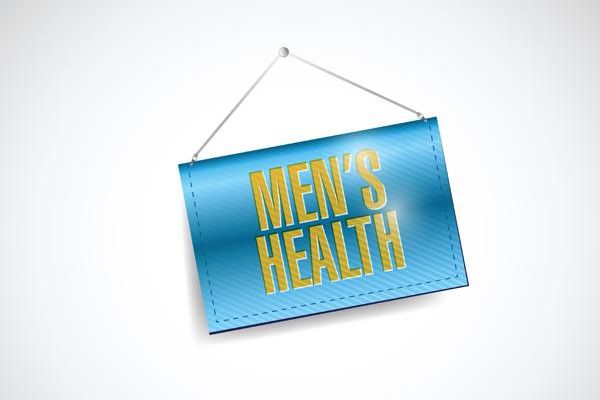All too often, women must bear the burden of watching the men they love get sick, and sometimes even die, because so many men avoid seeing health care providers.
My father struggled with diabetes and kidney failure before he died, and my late uncle struggled with heart disease for decades. I wish they had been more aggressive about protecting their health when early warning signs emerged. If they had, maybe they'd still be in my life today.
The good news is that Dr. Steven Lamm, director of the Preston Robert Tisch Center for Men's Health at NYU Langone Medical Center, said the tide is turning among men under 50, many of whom have grown up reading men's health magazines and engaging in fitness activities. While he still sees patients who “waited until their arm fell off" before coming in, Lamm's practice encourages men to take charge of their health by focusing on a lifetime continuum of wellness.
Here are Lamm's tips for how the men we love can be proactive about their health care.
Before age 30
Men should have a general blood test to determine their cholesterol and blood sugar levels. It's important for them to monitor their blood pressure and stay up-to-date on vaccinations — including flu, hepatitis, HPV and tetanus shots. Many doctors are also moving toward universal testing for HIV and hepatitis, and sexually active males should get regular testing for sexually transmitted diseases and infections.
These baseline measures will give men a snapshot of their current health status and allow them to address any potential health concerns early.
Between ages 35 and 50
Important tests include colonoscopies, which doctors are beginning to recommend at 45 instead of 50. Around age 50, doctors may recommend a colon study and some form of heart evaluation testing, as cardiovascular disease and colon cancer risks increase in one's 50s. This will establish whether cholesterol and blood pressure are normal or whether there are additional risk factors for heart disease. If you're over 50 and unsure of your risk of heart disease, a primary care doctor can offer an ultrasound CT scan of the heart, which measures calcium levels in the heart to help gauge your heart health. Calcium levels are more likely to be detected in middle age, which is why this test isn't advised until that time.
Minimize cancer risk
Testicular cancer is rare overall, but one of the more common types of cancer in younger men. It's highly treatable, so men between 13 and 35 should do regular self-examinations.
For prostate cancer, a test might be recommended for higher-risk groups, such as African American men or those with a family history of cancer. Again, a discussion with a doctor to determine risk and need for a test is imperative.
Take care of mental health
Men might be reluctant to openly acknowledge that they're feeling anxious or depressed, so look for other indicators that they might be struggling with their mental health. Too often, men handle mental health concerns in self-destructive ways, such as increased alcohol consumption and substance abuse or physically reckless behavior.
Suicide is the eighth-leading cause of death for men, indicating a need for increased attention to men's mental health issues. According to 2017 statistics from the National Institutes of Health, male suicide rates were almost four times higher (22.4 per 100,000) than female suicide rates (6.1 per 100,000). Suicide rates are highest among middle-aged men, with 31 deaths per 100,000 among men 65 and older — the highest of all male demographic age groups.
In many cases, more subtle behaviors including sleep issues, a lack of energy, and a loss of interest in sex are underlying signs of depression, and men should be encouraged to communicate with a health professional about these concerns.
Focus on wellness
To avoid becoming that stereotypical patient who waits until he's facing heart disease or kidney failure before seeing a doctor, men should focus on wellness at home and view doctor's visits as a form of preventive medicine. Men should avoid drinking too much alcohol and overeating, and investigate whether or not sleep apnea is the reason for waking up tired each morning. Finding ways to decompress after a long day at work can also be beneficial.
Consider one-stop-shop testing
A men's health clinic or center offers access to a wide range of specialists, tests and exams in one facility so men can address all their health and wellness needs in just one or two visits.
Form a health partnership
Women can serve as health advocates in their homes and within their families by promoting stress management, good nutrition and exercise. By fostering a sense of partnership, you can create an atmosphere supportive of overall wellness and encourage the men in your lives to take their health seriously.
For additional resources, please visit our partner organization, Men's Health Network.
- 10 Health Tips for the Men in Your Life ›
- Women Have a Big Impact on Men's Health ›
- 5 Ways to Help Him Last Longer in Bed ›






